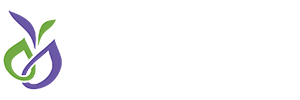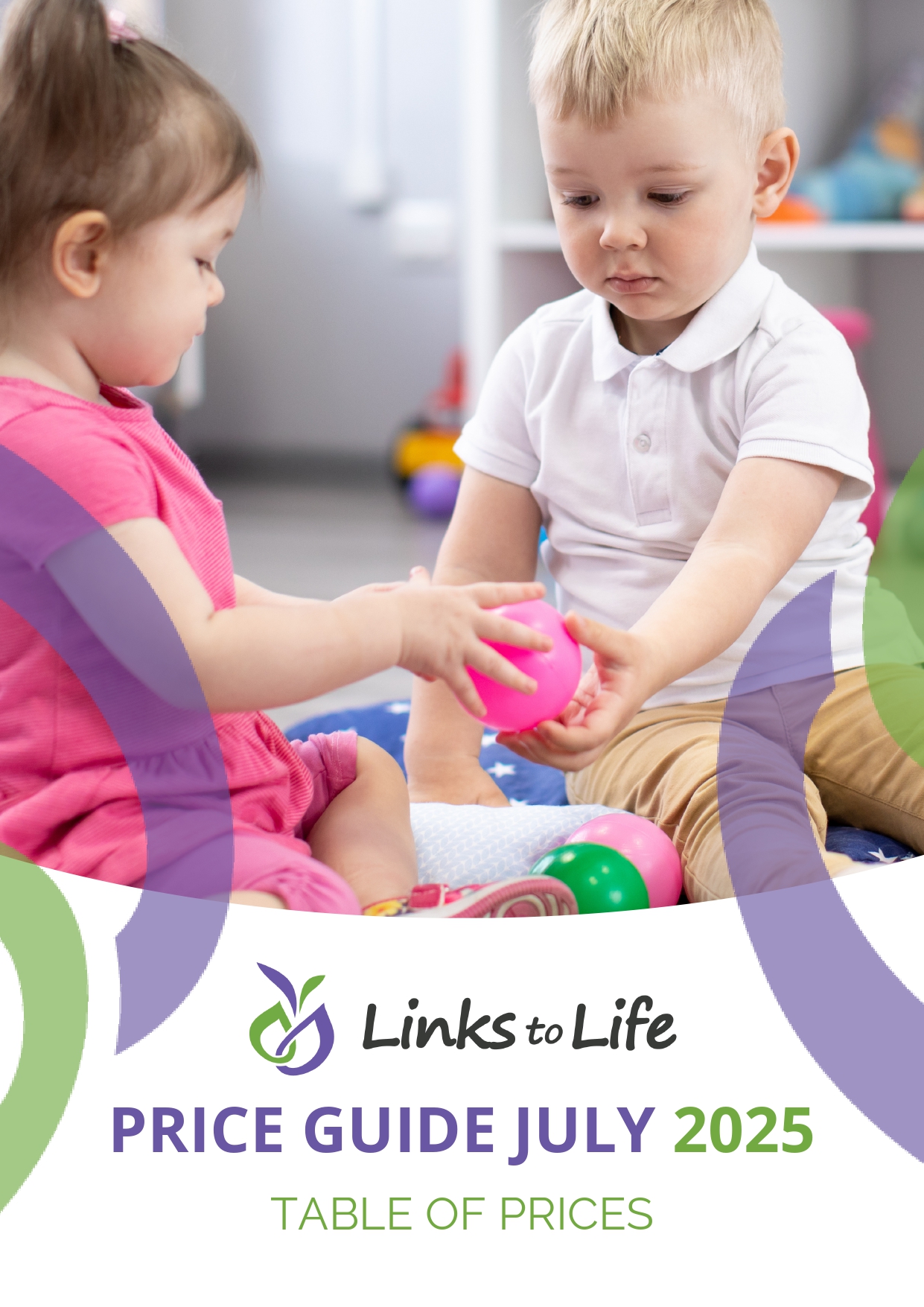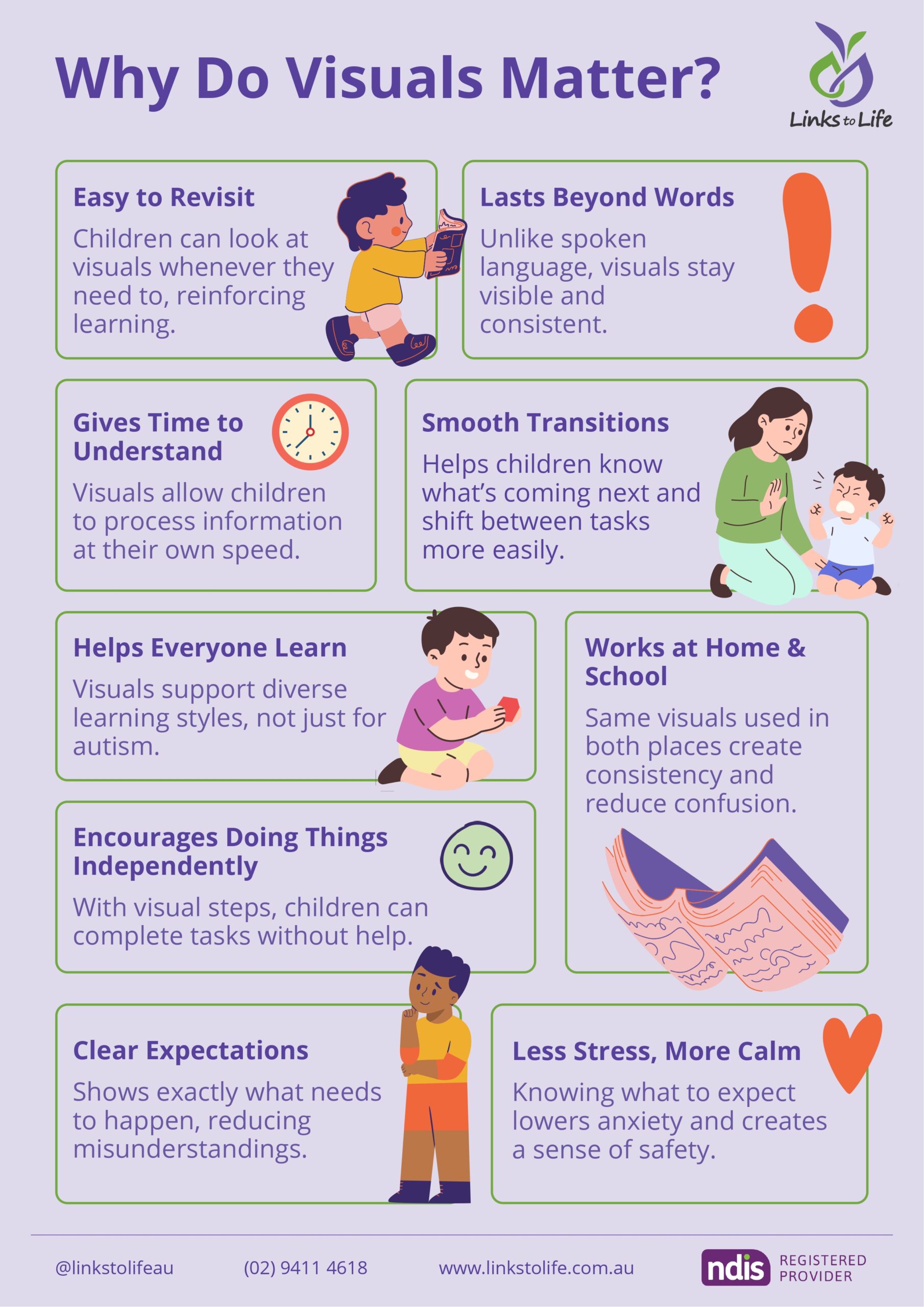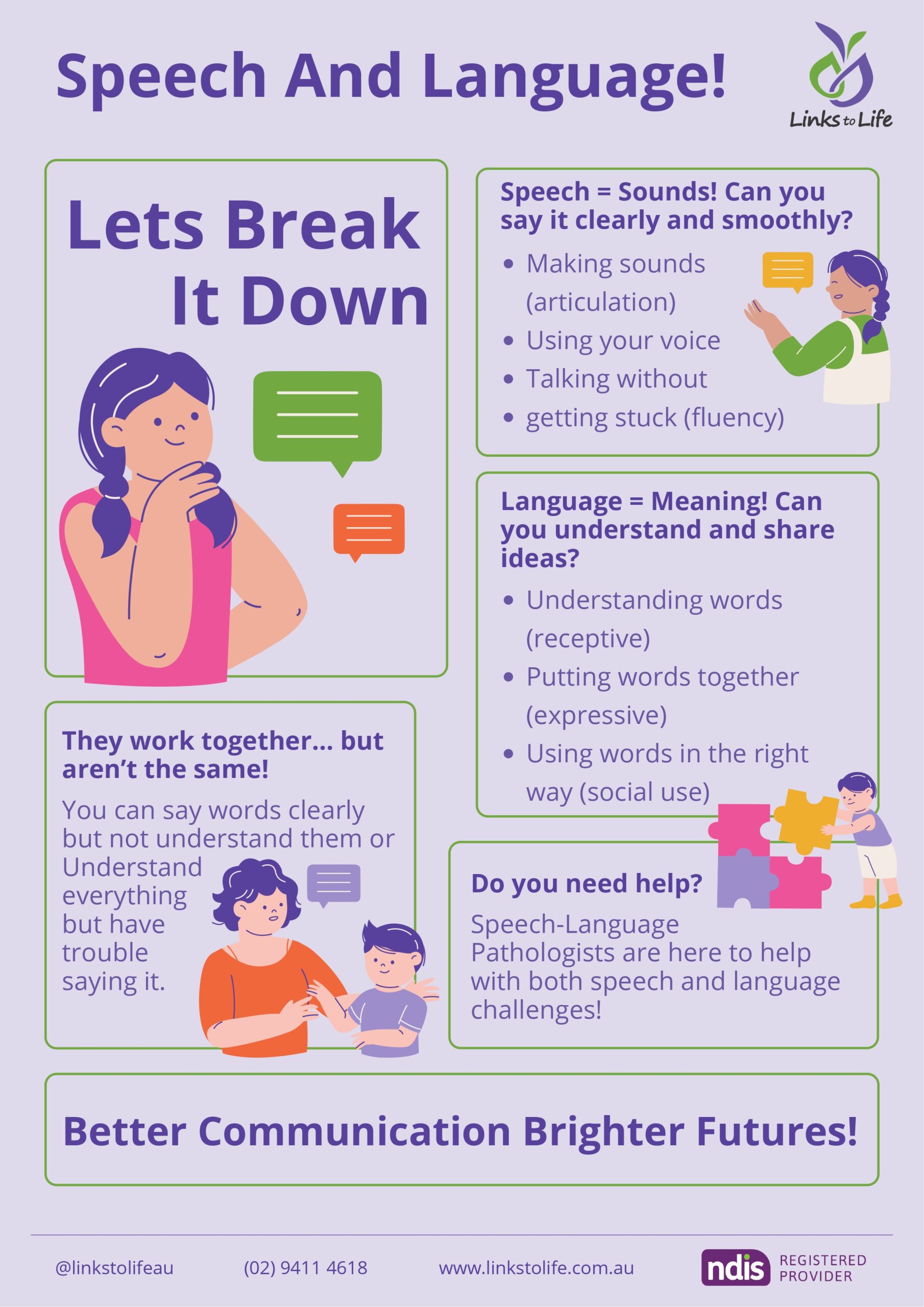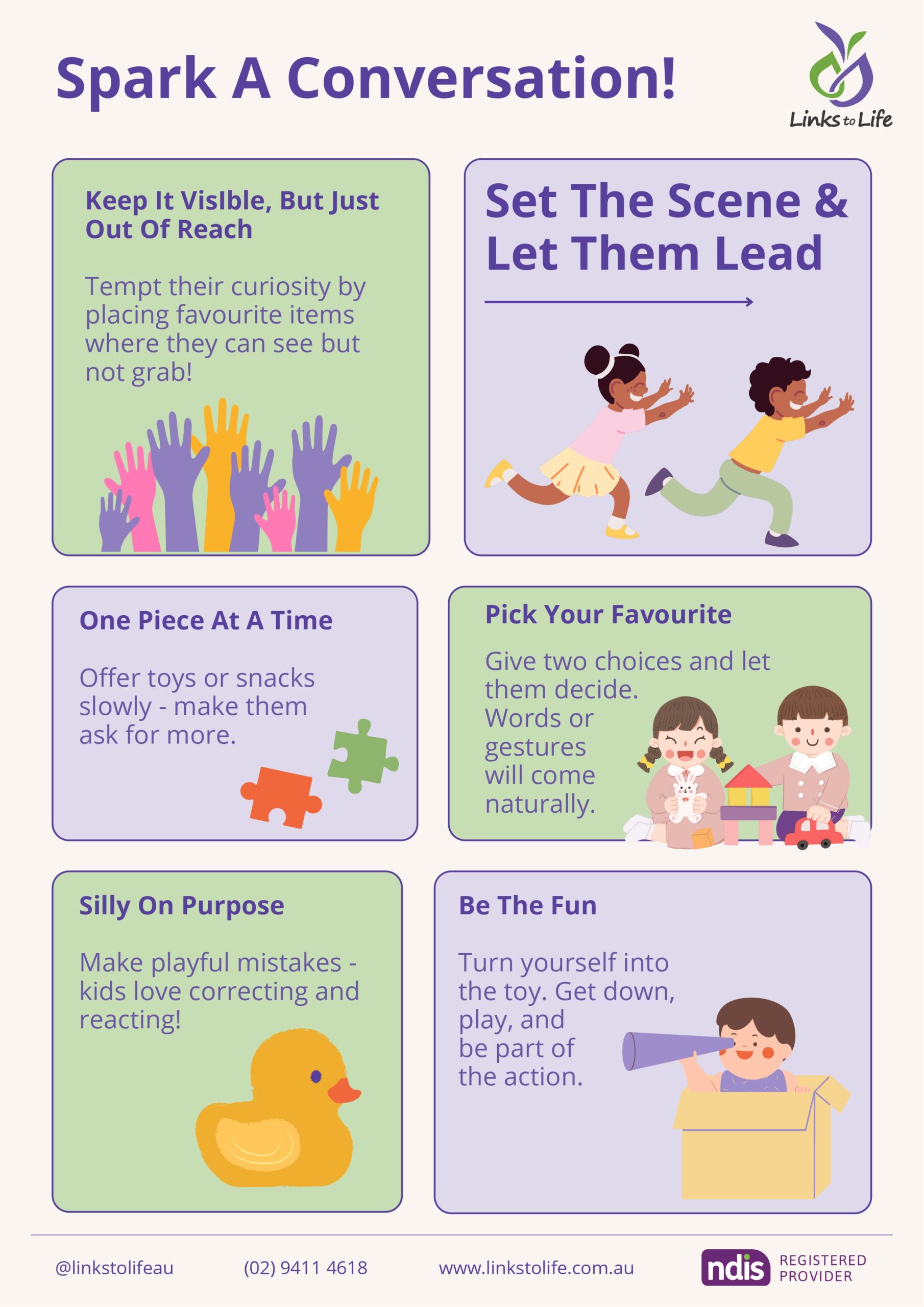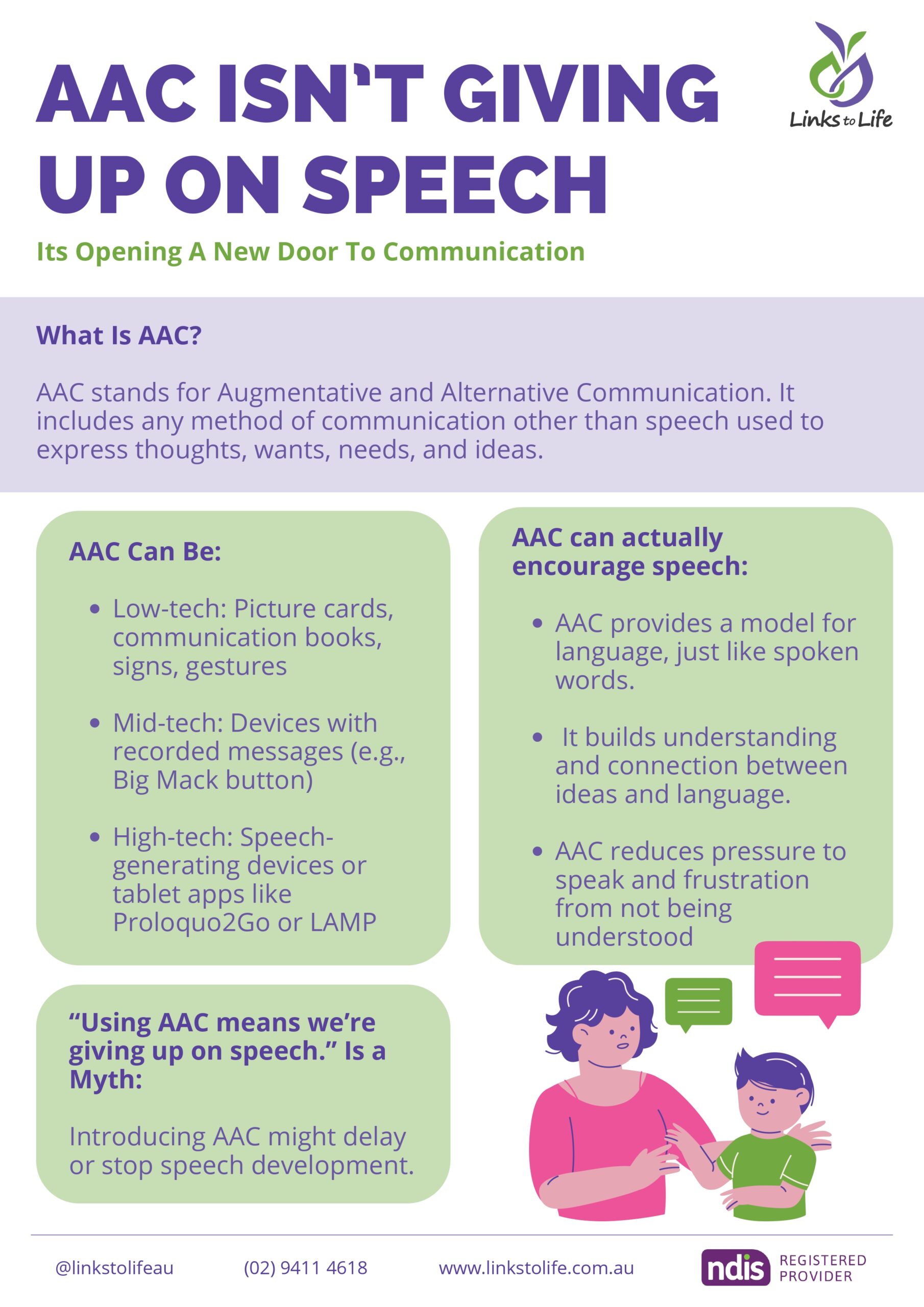Starting school is a big step for everyone, but for neurodivergent individuals, it can bring unique challenges. A successful transition is not just about academic readiness—it is also about fostering the social, emotional, and practical skills needed to thrive. At Little Links, we use the evidence-based Preschool Life Skills (PLS) Program, developed by Dr. Greg Hanley, to teach foundational social and communication skills in a structured, supportive way.
Communication Skills: Building Functional Communication
A primary concern frequently expressed by our families is supporting the child’s ability to effectively communicate their wants and needs, especially in the context of a busy classroom environment. At Little Links, a central focus is teaching children how to appropriately request items, assistance, or a break within group settings. This skill is integrated throughout the day using Natural Environment Teaching (NET) during play, mealtimes, and group activities. We individualize our approach to the child’s preferred communication method and level, reinforcing all attempts to foster future interactions.
Instruction Following Skills
Another essential skill for children in a school setting is the ability to follow simple instructions from a teacher. With personalized 1:1 support from therapists, children learn to follow frequently encountered school day instructions, such as packing away their belongings or sitting with the group during mealtime. A crucial first step in this process is teaching children to respond to their name when called. This is practiced throughout the day by pairing preferred items and activities with hearing their name.
Social Skills: Teaching Cooperation and Play
A common concern among our families is ensuring that their child engages with peers and remains an active part of the group. The Little Links and PLS programs focus on teaching the stages of play, beginning with parallel play, progressing to associative play, and advancing to cooperative play, where children learn to share, all tailored to each child’s individual level. Throughout the day, Little Links provides learners with opportunities to participate in enjoyable group activities, such as circle time, music, and sensory play. We also target peer engagement, facilitating positive and natural interactions to support the development of social connections.
Emotional Regulation and Flexibility
Managing emotions and adapting to change are fundamental skills for navigating the dynamic and busy environment of a classroom. At Little Links, through the PLS curriculum, we focus on helping children build tolerance for delay, such as waiting for preferred items, activities, or attention. We also work on teaching coping strategies for situations where a preferred activity is unavailable and support children in managing routine transitions calmly. Effective strategies include starting with short wait times and gradually increasing them, as well as using visual supports like timers and schedules to aid in transitions. Throughout this process, we ensure that boundaries are clear and consistent, while also approaching each child with empathy and kindness.
Independence and Self-Help Skills
At Little Links, we provide our learners with opportunities to build independence in a group setting, which in turn fosters self-confidence and helps reduce anxiety in the school environment. Children engage in daily self-care routines such as handwashing and toileting, as well as typical school activities like locating their cubby and packing their bag. By establishing a consistent routine, we create a sense of familiarity and predictability, which is crucial for children to feel secure and thrive in their learning journey.
Pre-Academic Skills
Lastly, these essential social, emotional, and practical skills are seamlessly integrated with fundamental pre-academic skills, such as learning to grip a pencil and engage in basic drawing or scribbling, matching shapes and colours, or, depending on individual abilities, more advanced tasks like letter and number recognition and completing academic tasks independently.
Beginning school can be an exciting yet daunting experience for neurodivergent individuals. At Little Links, we focus on key skills like communication, social interaction, emotional regulation, and independence, using evidence-based programs such as Dr. Greg Hanley’s Preschool Life Skills Program. Through this approach, parents and caregivers can help lay a strong foundation for their child’s success. It is important to remember that progress takes time, and every small step forward deserves to be celebrated.
Links to Life acknowledges each individual’s personal preference to use identity-first or person-first language to describe themselves or their loved one. We interchangeably use both language conventions and therefore refer to both Autistic children and children with Autism.
